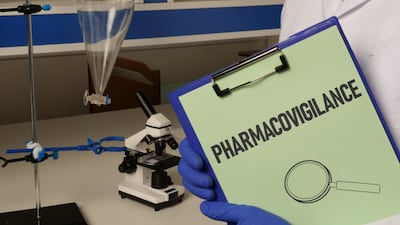Brexit
Joint Singapore-UK plan underlines direction of travel for MHRA after its embracing of international reliance (IR). Australia’s TGA has also broken new ground by recognizing the UKCA mark.
The MHRA’s post-market surveillance regulations for Great Britain will be followed in 2026 by a pre-market regulation, but its progress will not be steered by the agency’s erstwhile leader of device system transformation. The ABHI’s Steve Lee and Phil Brown ponder where national device system regulation – and the MHRA – go next.
With a looming deadline of 1 January 2025 for firms supplying Northern Ireland to comply with the Windsor Framework, UK generics and biosimilars association the BGMA has warned of potential supply interruptions due to requirements that include a “UK only” label for all packs as well as UK-based batch testing for biologicals.
With a looming deadline of 1 January 2025 for firms supplying Northern Ireland to comply with the Windsor Framework, UK generics and biosimilars association the BGMA has warned of potential supply interruptions due to requirements that include a “UK only” label for all packs as well as UK-based batch testing for biologicals.
There are increased complexities associated with potential regulatory divergence between the UK and the EU when the Medicines and Healthcare products Regulatory Agency takes over responsibility for UK-wide new drug approvals from January 2025, writes the ABPI's Rick Greville.
While pharmacovigilance requirements for medicines in the UK will remain “broadly in line” with current rules from 1 January 2025, companies should be aware of changes for some products after this date, the UK’s MHRA says.
Brexit has been cited as a cause of the UK’s 2020 decline in clinical trials, but research suggests that other global trends including the pandemic also had a large impact. Meanwhile, the MHRA’s efforts to incentivize sponsors could boost trial figures “substantially,” an expert says.
The UK’s drug regulator, the MHRA, has taken a hit in terms of capacity and funding post-Brexit, and could benefit from government backing to rebuild its regulatory capacity, a leading venture capitalist has said.
The UK is not alone in experiencing drug shortages, as data from across Europe show, but its departure from the EU makes it more difficult to respond to supply chain pressures, according to new research.
Guidance from the Medicines and Healthcare products Regulatory Agency says that the packaging of parallel imported medicines must make clear that they are for the UK market only.
The BioIndustry Association has welcomed a decision to delay the deadline for compliance with new regulations on the classification of imported materials used in drug production, but says the border rules are still not proportionate for life science products.
With the UK market experiencing approval delays, shortages, and regulatory complexity, the government’s “policy vacuum” and complacent approach to off-patent medicines risk undermining the sector, says BGMA chair Diane DiGangi Trench. In an exclusive interview with Generics Bulletin, she urges a shift from a “transactional” to a “strategic” relationship with industry to fully unlock the benefits of generics and biosimilars.










